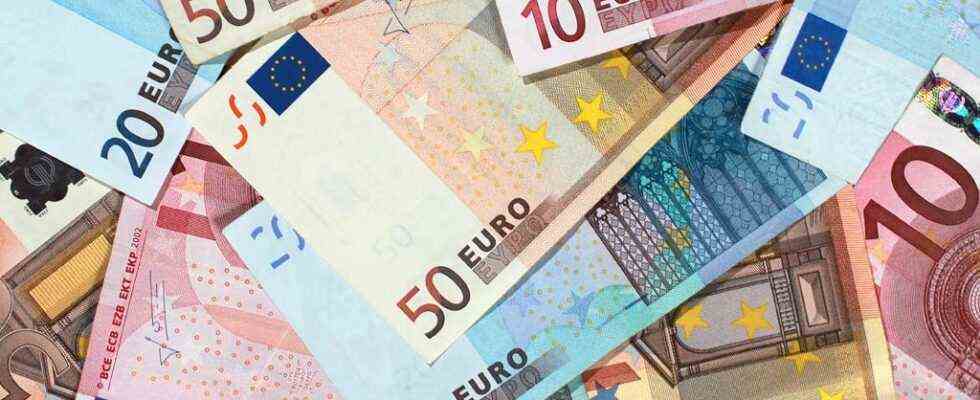Status: 07/16/2021 5:12 p.m.
On average, Germans are getting richer: for the first time, their financial assets have cracked the seven trillion euro mark. In the first quarter alone, an additional € 200 billion were saved.
The financial assets of the Germans are racing from record to record and for the first time exceeded the gigantic sum of seven billion euros. Private households owned around 7143 billion euros at the end of March, as the Bundesbank announced on Friday.
This means that the total has increased by 192 billion euros since the end of 2020. In particular, the price gains on the stock exchanges were responsible for the strong increase compared to the previous quarters. How the wealth is distributed, however, is not clear from the data.
Cash and bank deposits are still the most popular
The central bank takes into account cash, securities, bank deposits and claims against insurance companies. However, real estate is not included. According to the Bundesbank, cash and sight deposits, for example on current and overnight accounts, continue to make up the largest item at a good 2,858 billion euros.
Investors there earn nothing because of the slack interest rates and now often have to pay extra. In return, however, they can access their money quickly if necessary and hardly have any risk. The inflows in this area were comparatively moderate at EUR 47 billion in the first quarter.
Germans discover the stocks
At the same time, “the increasing involvement in the capital market speaks for an increased awareness of returns,” said the Frankfurt authority. The Germans would have bought shares in investment funds for 25 billion euros – more than ever before.
In addition, the savers, who are more likely to be shy of the stock market, stocked up on shares and other equity rights worth three billion euros. Many investors benefited from the steep recovery in prices after the corona crash in February and March of last year.
Last year, the number of shareholders climbed to the highest level in almost 20 years, according to the Deutsches Aktieninstitut (DAI). Accordingly, 12.35 million Germans and thus one in six owned shares in entrepreneurs or funds – almost 2.7 million more than a year earlier. The last time the number of stock savers was higher was in 2001.
Savings rate at a record high
Overall, however, stocks and funds still make up only a fraction of the total financial assets of private households: at the end of March, according to the Bundesbank, a good 866 billion euros were in stocks and other equity securities and just under 791 billion euros in investment funds.
People also invest large sums in insurance and other retirement products. Here inventories increased by a comparatively strong 27 billion euros to around 2,485 billion euros.
One reason for the overall increase in wealth is savings behavior. According to calculations by ING Germany and Barkow Consulting, German private households have set aside the most money in Europe for the eighth time in a row in 2020.
Less expenses due to Corona
Due to the restrictions, many people were unable to spend their money as usual. Many trips were canceled, and the closure of restaurants and shops slowed consumption. According to the Federal Statistical Office, household spending fell by 5.4 percent in Germany alone in 2020.
Also out of concern about short-time work or unemployment, the money went into the piggy bank. The savings rate soared to a record high of 16.2 percent in 2020. For every 100 euros of disposable income, households put an average of 16 euros on the high edge.
Economists assume that, thanks to vaccinations and relaxation, people will catch up on some consumption in the future. Nevertheless, financial assets should continue to grow – thanks to increases in the value of stocks, funds and certificates. The DZ Bank is forecasting financial assets of EUR 7.6 trillion for the current year, and by 2022 it could reach the EUR 8 trillion mark.

